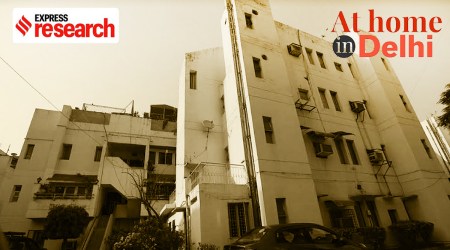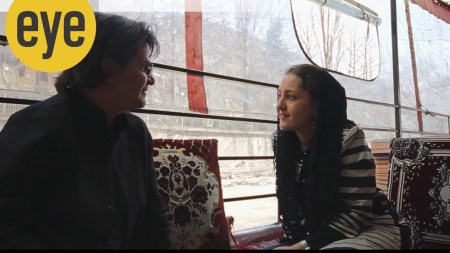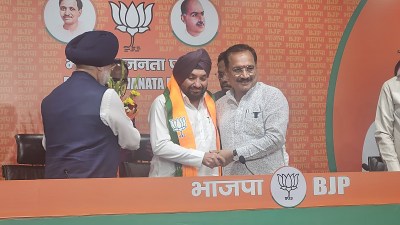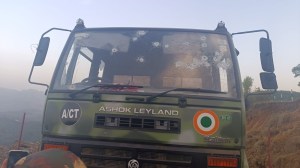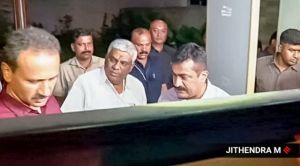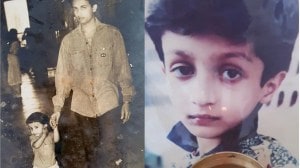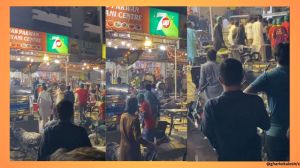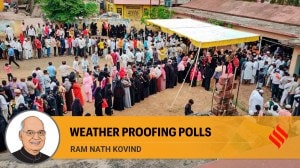- India
- International
Delhi’s Nizamuddin Basti is de-contained, but residents ask: Who will hire us?
Delhi coronavirus news update: It was among the first few areas in the city to be declared a containment zone and remained one for over two months. On May 5, the last positive case was reported and the patient died on May 12.
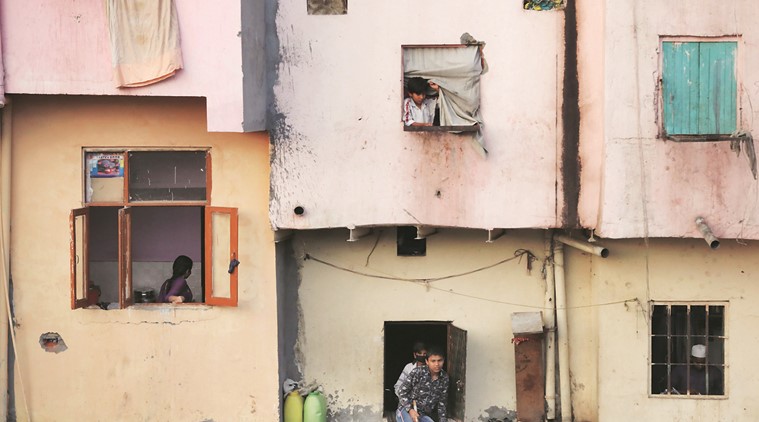 The last positive case was reported on May 5. (Express Archive)
The last positive case was reported on May 5. (Express Archive)
When scaling down of the Nizamuddin Basti containment zone was announced after 70 days, Mohamad Irfan (38), a supervisor at an export company, gave three interviews over the phone to apply for a new job. He was confident he would get something — until they asked him where he lived.
“When I would tell them I am from Nizamuddin, they would tell me to wait for at least two months. They were scared I would spread the virus; they would ask questions about my family… There is fear in people’s minds and I am paying for it,” he said.
For Irfan and the 20,000 residents of the basti, the stigma attached to the virus is robbing them of job opportunities in an already distressed economy.
The area was declared a Covid hotspot on March 30 after a Tablighi Jamaat gathering of around 2,000 people was held at the Nizamuddin Markaz in late March. The event has been linked to a number of Covid-19 cases across the country.
It was among the first few areas in the city to be declared a containment zone and remained one for over two months. On May 5, the last positive case was reported and the patient died on May 12.
The order for desealing was announced on June 7.

Irfan was fired from his previous job as his employer had to close down the export unit in Okhla Industrial Area. He used to earn Rs 24,000, which ran out in the first month of the lockdown. His family of five then survived on ration distributed by government.
Ali Imran (38), a carpenter who used to earn Rs 700 per day before the lockdown, was told by a private contractor that his services were not needed as he was a resident of Nizamuddin. “The contractor just refused to listen to me. He kept telling me that I come from a high-risk zone. Thankfully, I got a new job on Monday but everyone is very scared of me. They keep asking if I feel sick. I fear I won’t be able to hold down my job,” said Imran, who has five family members, including two minor children. They survived on dry ration during the lockdown.
Stories of employers turning them down were many. Kenith Ronny (30), who has a wife and a seven-month-old daughter, used to earn Rs 20,000 driving a lawyer to the Supreme Court. He was let go by his employer in March and the lockdown wiped out his savings in 20 days. He is now making phone calls to private cab companies seeking a job. “The interviews go fine until they ask where I live. After the first few calls, I stopped asking why I was not selected,” said Ronny.
While Amil Gulzari (40) lost his job at a pharmaceutical company around six months ago, his wife, who also worked in a similar company, lost her job before the lockdown. He recently drove his wife to an interview, which she did not clear. “The first thing they saw was her Aadhaar card and they became stiff. They asked personal questions about our family in Nizamuddin Basti… if we had a history of the virus or came in contact with anyone who did. Then they told her she could not be accommodated,” said Gulzari.
For Rani (30), a domestic help, zero income and the stigma of being from the basti has hit her twice as hard. She used to cook for a family in Nizamuddin East, earning Rs 10,000 for 12 hours of work. She was last paid in March. With expenses mounting — a debt of Rs 1 lakh to pay, rent for three months, an EMI on her husband’s bike — she made calls asking if she could rejoin work but her employers told her not to come for two months. “They kept telling me I stay near Markaz. They have children and are scared… I understand. But what about my children?” said Rani.
Area councillor Yasmin Kidwai said: “What is happening with residents is very unfortunate… Unfortunately, with the kind of messaging, there is a stigma attached to Covid patients which has not been clearly explained and people have not been educated about it. Then, there was the Markaz gathering… The area also remained a containment zone for so long though there were no cases there. Even the cases which were found in Markaz was in a building at the edge of the basti… It was not fair to seal everyone.”
Buzzing Now
May 04: Latest News
- 01
- 02
- 03
- 04
- 05





